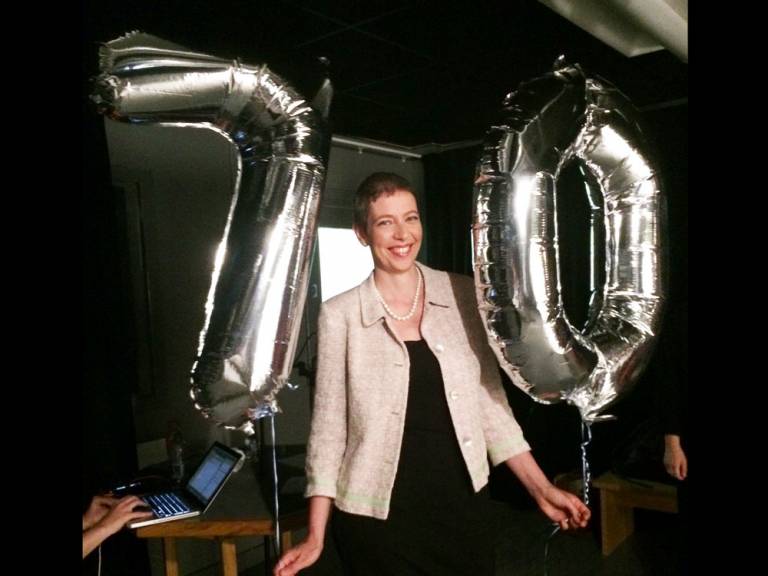UCL celebrates 70 years of working with the NHS
5 July 2018
To celebrate 70 years of the National Health Service, researchers and clinicians from across UCL have spoken about what the NHS means to them and how their work impacts the nation's health.

In a series of short films launched today, academics describe how UCL works with the NHS in a number of different ways to improve patient care, and, by working with major teaching hospitals, to train the next generation of health professionals.
"We're working with individuals who might be paralysed from spinal or brain injuries, or have had limbs amputated - some of the technologies we have developed use exoskeletons to allow individuals to walk again," said Dr Rui Loureiro (UCL Division of Surgery & Interventional Science).
"We are also developing technologies to help the brain treat a missing limb as if it is back, so individuals can feel and control pain, and lead a more rewarding life. What is remarkable is how we are fast-tracking these technologies from lab to the bedside table. A movement that is truly embraced by the NHS."
In her film, Professor Rachel Batterham (Head of the Centre for Obesity Research at UCL) explained, "Obesity and type 2 diabetes are two of the greatest problems facing the NHS, causing about 25,000 preventable deaths a year. My research is about understanding how the body controls appetite and blood sugar and the role of hormones from the gut.
"Every patient who comes along to our clinical service is offered the opportunity to take part in research and 99% of them really want to get involved to help us understand how body weight is regulated, how they've been affected and help us develop new treatments. It really does bring together science and clinical care into a big team all with the same ethos and drive to improve outcomes for patients."
Throughout UCL's history, the academic community has spearheaded and revolutionised public health care, from the first operation done under anaesthetic (Robert Liston, Professor of Clinical Surgery, 1846) to the first family planning clinic in London (Marie Stopes, UCL alumna, 1921).
We've been at the forefront of genetics too. UCL alumnus, Francis Crick, identified the double helix structure of DNA with James Watson in 1962 and more recently, we've led pioneering research into the genetic causes of Alzheimer's disease (Professor John Hardy, UCL Institute of Neurology, 2015).
UCL has a unique partnership with several hospitals through the National Institute of Health Research (NIHR) Biomedical Research Centres (BRCs).
In 2017, UCL's three BRCs were awarded more than £167m in collaboration with partner hospitals (£111.5m for the University College London Hospital BRC, £37m for the Great Ormond Street BRC and £19m for the Moorfields Eye Hospital BRC). UCL has received more funding than any other UK university.
Today, UCL's impact on the NHS reaches far beyond medical advances. We're researching how electronic health records and primary data collection can impact health policy and practice, and the behavioural and psychological factors affecting adherence to medicine.
Team are also focusing on how access to legal advice can help address health inequalities and how the collaborations between the arts and medicine can inspire and raise awareness of public health crises, such as air pollution.
Speaking in the anniversary film, UCL President & Provost, Professor Michael Arthur added, "As a world-leading research intensive university we cover many disciplines and almost all of them work with the NHS, from Engineering to our Faculty of the Built Environment - the Bartlett, from the Social Sciences to Arts and Humanities. Our interaction with the NHS is incredibly broad and highly successful.
"The NHS is extraordinary. I'm so proud to be working with the NHS and happy 70th birthday."
To watch the full series of films please go to: www.ucl.ac.uk/slms/nhs70 where they will be uploaded in due course or follow the conversation on Twitter ♯UCLlovesNHS.
Links
Image
- Miss Caroline Moore (UCL Division of Surgery & Interventional Science)
 Close
Close

